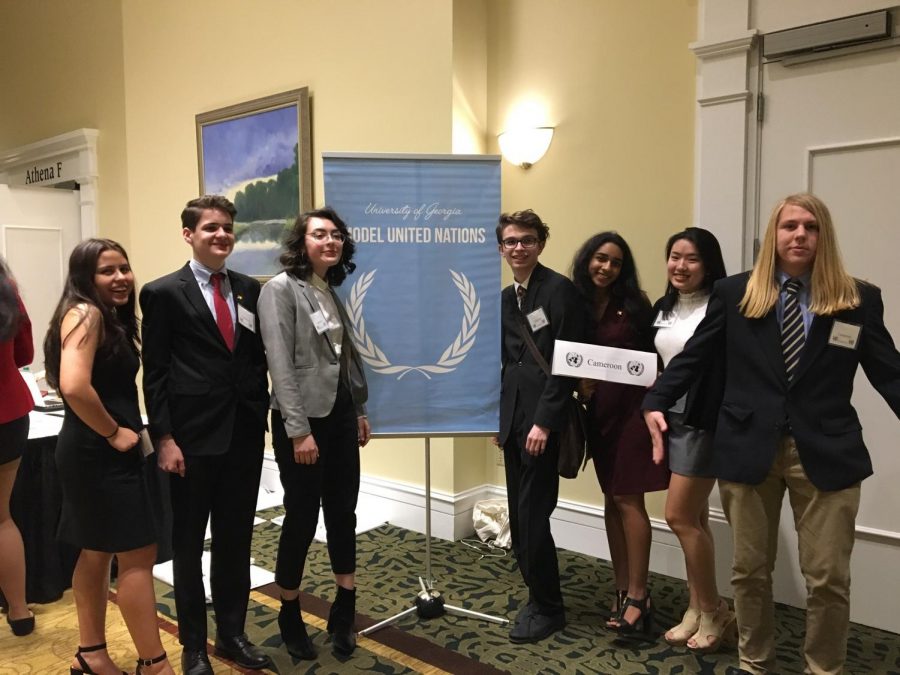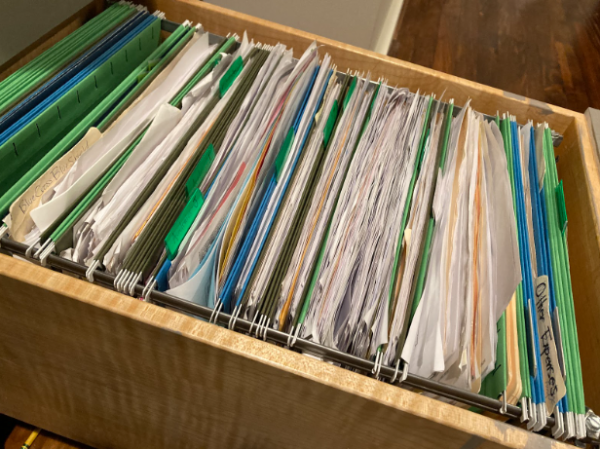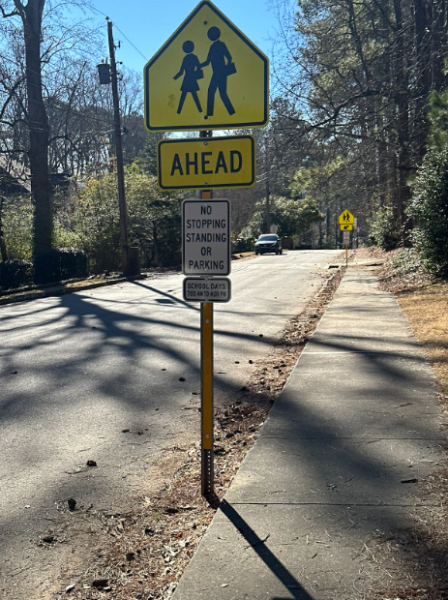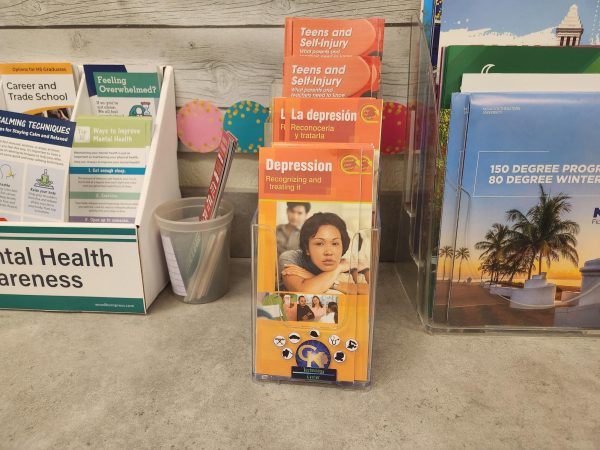Young Delegates Fight for Change at Model UN
Photo courtesy of Ashley Veazey.
Chamblee students attending Model UN. (Left to right: Victoria Ordonez, Foster Cowan, Ashley Veazey, Carson Ankeny, Shrika Madivanan, Amy Lin, and Nick Markiewicz.)
Tomorrow’s diplomats, politicians, and leaders are learning valuable skills — today. One way these students with an interest in international affairs, economics, and political science can get practice while in high school is by participating in Model United Nations (UN).
“In Model UN, your school is assigned a country and all of us go and participate in these different committees,” said sophomore and Model UN delegate Carson Ankeny. “So, at the most recent conference, it was hosted at UGA [the University of Georgia] and we were representing Cameroon.”
Each school has the ability to select which country they would prefer to represent, but this doesn’t guarantee its role.
“We choose a country and then we request for it, but this time, because we were late registering, we got our last choice, which was Cameroon, but we’ve done Cameroon before … so we are comfortable with it,” said junior Shrika Madivanan.
The event is mainly composed of different committees, in which participants address and discuss various issues that their county is currently facing.
“There are different committees, so for example, my committee was GA [General Assembly] 3 and that focuses on social, humanitarian, and cultural stuff,” said Madivanan.
Examples of cultural issues include religious conflicts.
“Our topics, in particular, were about the Rohingya Muslim crisis and other social, humanitarian [topics],” said Madivanan.
Junior Nicholas Markiewicz had a different set of issues to address.
“We were the General Assembly 1, which is like disarmament and security, and so our topics were the drug and arms trade in Latin America, the civil war in Yemen, and terrorism in sub-Saharan Africa,” said Markiewicz.
Ankeny spent time specifically with other African nations.
“Within in the African Union, we were talking about Chinese involvement within Africa and then also sexual violence during conflict,” said Ankeny. “So, it’s really usually pressing issues for the countries involved. But there are different ways that the countries want to solve it, so there’s a lot of debate that goes on and a lot of agreements that have to be made.”
To make sure the delegates fully understand what they stand for in the interest of their country, they must prepare for the conference ahead of time by writing position papers.
“You have to write position papers about your country’s stance, so you have to do research, not only on the topic but also on what your country actually believes,” said Ankeny.
The paper does have to meet certain criteria, which is in the rules.
“They [the MUN organization] give you a guide, telling you background information and then they ask you questions that like you might want to consider writing your paper on how to solve it, like short-term and long-term solutions,” said Madivanan.
A big part of success is making sure that the delegates have access to accurate information.
“A lot of people who go, make research binders, so that includes all of the articles that they’ve used, just so that they can reference statistics during their speaking,” said Ankeny.
Feeling prepared helps reduce the potential for mistakes while arguing your country’s case.
“It could be intimidating because people can call you out if you don’t know what you’re saying … because people are really intense about it,” said Madivanan.
There are various ways in which you can “win” at Model UN.
“There are multiple awards, and so for this one [competition], there’s like you can win as a whole country, but that’s like everyone’s points would add up collectively, so like my committee, GA 3 would also be with other people’s committees, like GA 2 or GA 1, and then all your points would go together,” said Madivanan.
Individually, if you have a creative and well-liked idea in your committee, you receive credit on the resolution, which is a concrete and definitive plan, by sponsoring it.
“The way you win is if you’re actively participating a lot and if you’re a sponsor on the … [resolution] or if you’re leading a group of people, like a bunch of the countries and getting them to ally on your side, the people that are running it will take note and that’s how you win,” said Madivanan.
There are several skills that are useful for delegates to have.
“You have to confident, you have to be a good public speaker, you have to be articulate and convincing,” said Markiewicz. “And you have to be a good people person because you are interacting with other people.”
Madivanan sees a similar flamboyant and intense personality type that many delegates express during the competition.
“You have to be really extra. People that aren’t, they get extra there because everyone else is extra, and it just seems like that’s what you should do, and like no cares, so no one’s going to make fun of you,” said Madivanan.
She has simple advice for first-timers who may be nervous about the competition.
“You just have to speak, you just have to put yourself out there,” said Madivanan. “… Even if what you’re saying is wrong, at least you’re saying something.”
Madivanan hopes to study international affairs in college and eventually for work a non-governmental organization. Markiewicz’s participation in Model UN also has to do with his aspirations in the future.
“I’m probably going to run later, for [political] office,” said Markiewicz.
For now, though, the Model UN delegation from Chamblee will continue participating in competitions and learning valuable skills they will use for years to come.
“The next one that we’ll be participating in is at Georgia Tech and that is next year at the start of the semester in September,” said Ankeny.
Your donation will support the student journalists of Chamblee High School Blue & Gold. Your contribution will allow us to print editions of our work and cover our annual website hosting costs. Currently, we are working to fund a Halloween satire edition.
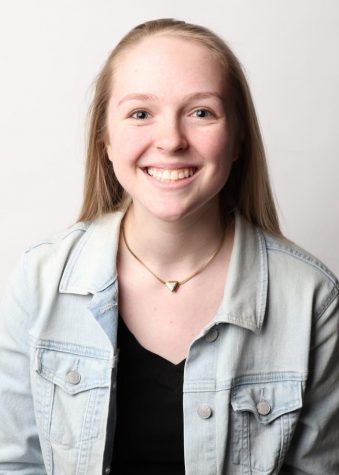
Hope Williams is a senior staff writer. When she's not churning out articles, you can find her playing with her cats or going on a hike. This is her second year on the staff.

